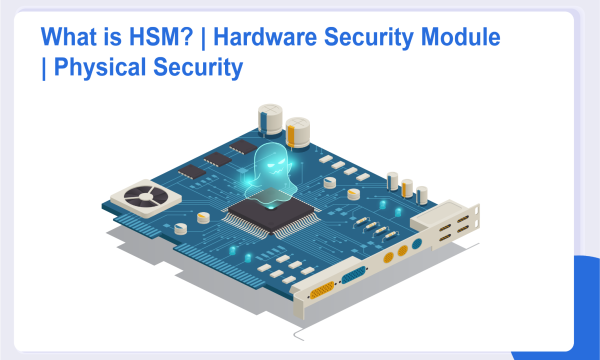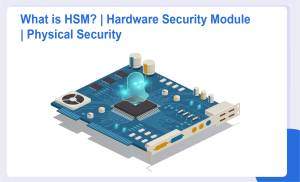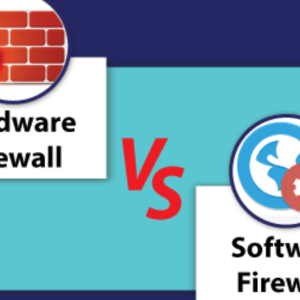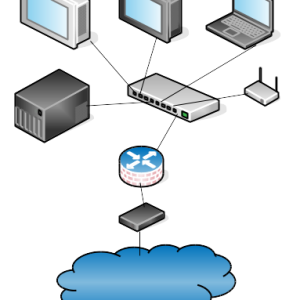
In an increasingly digital world, securing sensitive data has become paramount. One critical component in the arsenal of data protection tools is the Hardware Security Module (HSM). This article will delve into the various aspects of HSMs, including what they are, their functionalities, and their importance in securing information.
What is a Hardware Security Module (HSM)?

A Hardware Security Module (HSM) is a physical device that provides robust security functions, particularly for cryptographic operations. These modules are designed to safeguard and manage digital keys, ensure strong authentication, and facilitate crypto processing. HSMs are integral in securing sensitive data, ensuring compliance with regulatory standards, and maintaining the integrity of cryptographic processes.
Key Features of HSMs
- Cryptographic Key Management: HSMs are primarily used for managing cryptographic keys. They generate, store, and handle the usage of these keys in a highly secure environment, ensuring that keys are never exposed outside the module.
- Strong Authentication: HSMs require stringent authentication measures before granting access to sensitive operations. This ensures that only authorized personnel can perform critical cryptographic tasks.
- Tamper Resistance: HSMs are built with physical and logical tamper-resistant mechanisms. If an unauthorized attempt is made to access the module, it can zeroize all stored keys to prevent compromise.
- Regulatory Compliance: Utilizing HSMs helps organizations comply with various regulatory standards such as PCI DSS, GDPR, and eIDAS, which mandate strict controls over cryptographic key management.
Types of HSMs
- General-Purpose HSMs: These are versatile and can be used across various applications including digital signing, key management, and encryption.
- Payment HSMs: Specifically designed for the financial sector, these HSMs handle PIN management, card personalization, and secure transaction processing.
- Network HSMs: These are connected to a network and provide cryptographic services to multiple applications or users. They are ideal for large-scale enterprises needing centralized key management.
- Embedded HSMs: These are integrated within other devices to provide hardware-based security functions, often used in IoT devices and secure mobile communications.
How HSMs Enhance Security
HSMs enhance security through several mechanisms:
- Secure Key Generation and Storage: Keys are generated within the secure confines of the HSM and never leave the device in plain text form. This reduces the risk of key exposure and theft.
- Cryptographic Operations: HSMs perform encryption, decryption, digital signing, and verification operations within the secure environment, ensuring that sensitive operations are not vulnerable to external attacks.
- Access Control: HSMs enforce strict access controls, ensuring that only authenticated and authorized users can access sensitive cryptographic functions.
Applications of HSMs
HSMs are employed across various sectors for different applications:
- Financial Services: For securing online transactions, protecting payment data, and ensuring compliance with financial regulations.
- Healthcare: To protect patient data, ensure the integrity of medical records, and comply with health information regulations.
- Government: For securing classified information, digital identities, and ensuring the integrity of electronic voting systems.
- Enterprise Security: To protect intellectual property, secure communications, and manage digital certificates.
Choosing the Right HSM
When selecting an HSM, organizations need to consider several factors:
- Security Certifications: Look for HSMs that have been certified by recognized standards such as FIPS 140-2 or Common Criteria.
- Performance: Evaluate the performance capabilities of the HSM, including transaction speeds and the number of operations it can handle simultaneously.
- Scalability: Ensure that the HSM can scale with your organization’s growth and increasing security demands.
- Integration: Consider how well the HSM integrates with your existing infrastructure and whether it supports the required cryptographic algorithms and protocols.
Network Hardware Security Modules
A Network Hardware Security Module provides cryptographic services over a network, allowing multiple users or applications to leverage its security functions. This type of HSM is particularly useful for large organizations that require centralized key management and high availability of cryptographic operations. Network HSMs often come with features like load balancing, clustering, and failover capabilities to ensure continuous availability and optimal performance.
Hardware Encryption Modules
While HSMs encompass a wide range of cryptographic functions, Hardware Encryption Modules are specialized devices focused solely on encryption and decryption tasks. These modules are essential for securing data at rest and in transit, providing a robust layer of security against data breaches and cyber-attacks.
The Future of HSMs
The role of HSMs is expected to grow as organizations increasingly adopt cloud services, IoT devices, and blockchain technologies. Future developments may include:
- Cloud-Based HSMs: Offering HSM functionalities as a service, providing flexibility and scalability for cloud-based applications.
- Quantum-Resistant Cryptography: As quantum computing evolves, HSMs will need to support new cryptographic algorithms that can withstand quantum attacks.
- Enhanced Integration: Seamless integration with emerging technologies such as IoT and blockchain to provide secure and scalable solutions.
Conclusion
In conclusion, Hardware Security Modules (HSMs) are indispensable in the modern landscape of cybersecurity. They provide essential cryptographic services, ensure the secure management of digital keys, and help organizations comply with stringent regulatory requirements. By understanding what HSMs are, their functionalities, and their applications, organizations can make informed decisions to enhance their security posture and protect sensitive data.
Whether you are looking to secure financial transactions, protect healthcare information, or ensure the integrity of government communications, investing in a robust HSM solution is a critical step towards achieving comprehensive data security.
If you have any questions for us, you can see more at: https://hardwarepc.xyz/, X




